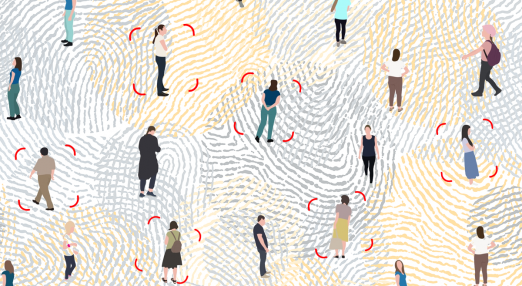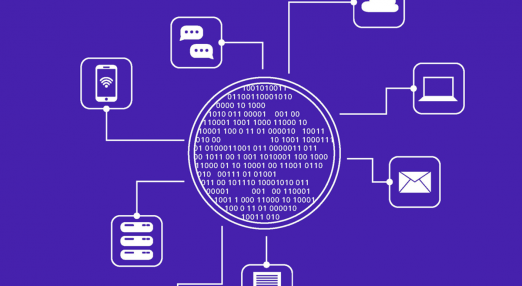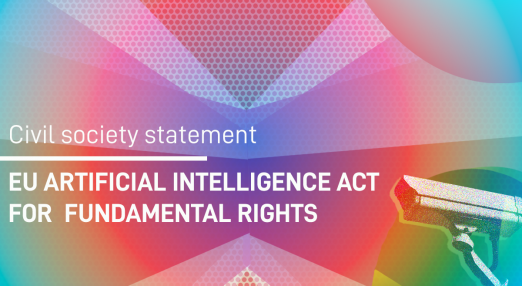Press release: European Commission jumps the gun with proposal to add facial recognition to EU-wide police database
The European Commission has put forward a proposal to ‘streamline’ the automated sharing of facial recognition images and other sensitive data by police across the EU. What will be discarded in order to ‘streamline’ the process? Vital safeguards which are designed to protect all of us from state over-reach and authoritarian mass surveillance practices.
Filter resources
-

Press release: European Commission jumps the gun with proposal to add facial recognition to EU-wide police database
The European Commission has put forward a proposal to ‘streamline’ the automated sharing of facial recognition images and other sensitive data by police across the EU. What will be discarded in order to ‘streamline’ the process? Vital safeguards which are designed to protect all of us from state over-reach and authoritarian mass surveillance practices.
Read more
-

UN Special Rapporteurs challenge EU’s counter-terrorism plans
Through their communication, the Special Rapporteurs demonstrate how several existing and foreseen EU security measures fail to meet the principles of legality, necessity and proportionality, enshrined in European and international laws (such as the Regulation on preventing the dissemination of Terrorism Content Online and the processing by Europol of sensitive data for profiling purposes). The fatal flaw lies in the use of broad and undefined terms to justify extensive interferences in human rights.
Read more
-

EDRi-gram, 1 December 2021
In this edition, we tell you how you can take your power back from Big Tech companies and help us create a democratic, fair and open internet for a just society. We are also calling on the EU to put our fundamental rights first in the Artificial Intelligence Act (AIA).
Read more
-

EU ropes in intelligence agencies for enhanced border checks targeting Afghan nationals
Intensified border security checks targeting Afghan nationals have been agreed by the Council of the EU, with the procedures requiring the extraction of mobile phone data and significant coordination with national intelligence agencies – despite the EU having no competences in the realm of “national security”.
Read more
-

The ICO provisionally issues £17 million fine against facial recognition company Clearview AI
Following EDRi member Privacy International's (PI) submissions before the UK Information Commissioner's Office (ICO), as well as other European regulators, the ICO has announced its provisional intent to fine Clearview AI.
Read more
-

Data Retention? Advocate General says “Asked and answered!”
After the 2020 landmark ruling (La Quadrature du Net and others), one would have hoped that the Court had provided sufficiently clear conclusions with regards to the legality of data retention regimes in the EU. Nonetheless, the three referring national courts maintained their requests for preliminary rulings.
Read more
-

New German government calls for European ban on biometric mass surveillance
The newly-agreed German government coalition has called for a Europe-wide ban on public facial recognition and other biometric surveillance. This echoes the core demands of the Reclaim Your Face campaign which EDRi has co-led since 2020, through which over 65 civil society groups ask the EU and their national governments to outlaw biometric data mass surveillance.
Read more
-

Algorithmic persecution based on massive privacy violations used to justify human rights abuses, says new report
More than 13,000 Turkish military personnel have been dismissed since July 2016 on the basis of an algorithm used by the authorities to assess the alleged “terrorist” credentials or connections of military officers and their relatives in violation of multiple human rights, says a new report published today by Statewatch.
Read more
-

PlatformPower.eu
Imagine we live in a world where online platforms enable you to change society, are following your choices for online experience and are accountable to society about how their negative effect on society should be tackled.
Read more
-

Civil society calls on the EU to put fundamental rights first in the AI Act
Today, 30 November 2021, European Digital Rights (EDRi) and 119 civil society organisations launched a collective statement to call for an Artificial Intelligence Act (AIA) which foregrounds fundamental rights.
Read more
-

New RESOURCE PAGE helps supporters BAN biometric mass surveillance
The Reclaim Your Face collective has put together a brand new Resource Page, helping all activists spread the word and take action easily, online, offline – at all times, wherever they are.
Read more
-

What you need to know about the Facebook Papers
Facebook is now undergoing what may be the tech giant’s biggest crisis in its 17-year history. In October, The Washington Post reported that a second Facebook whistleblower came forward to the U.S. Securities and Exchange Commission, alleging that the company prioritises growth over combating hate speech, disinformation, and other threats to the public. The whistleblower’s testimony follows that of former Facebook employee Frances Haugen, whose legal counsel released what’s known as the Facebook Papers — a 10,000-page collection of internal reports, memos, and chat logs leaked to more than a dozen major news outlets.
Read more
